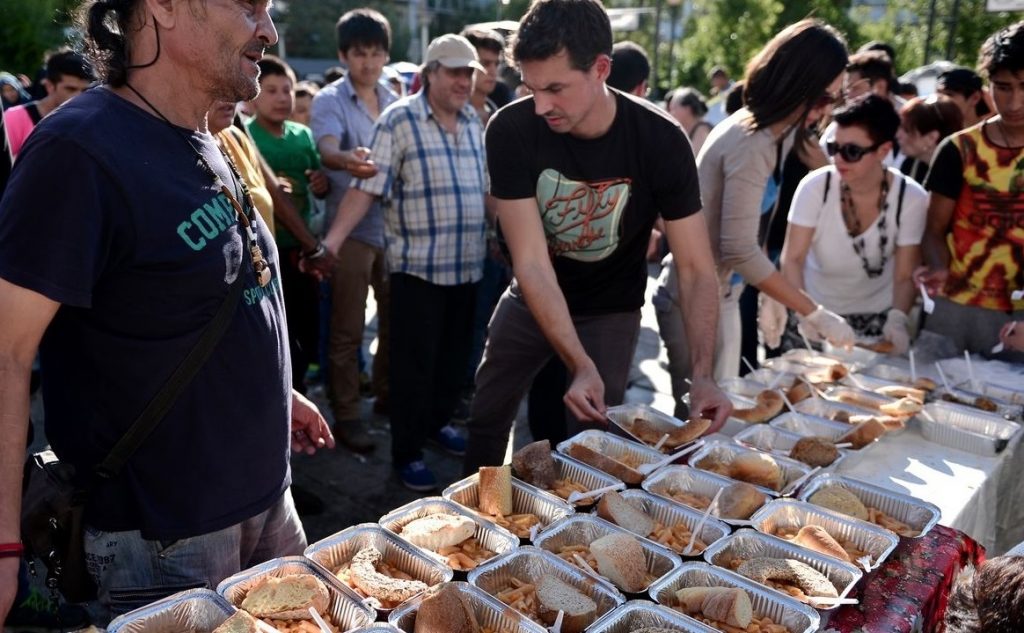At GCVSI, We Defend the Rights and Dignity of the Vulnerable Population


Healthcare and Social Services
Improving accessible evidence-based knowledge and practical experience in health and social inclusion of the underserved population through health promotion and education, disease prevention, and direct provision of health and social services including medications.

Health for All
Promoting “Health for All” policies approach irrespective of the socio-economic status, with emphasis on Older Adults, Homeless People, refugees, and victims of Gender-based violence.
Collaborative Efforts
Collaborative efforts in research and ‘Translating’ research and evidence into useable knowledge and knowing how for improving service delivery.
capacity building
Supporting the capacity building of the health workforce, policymakers, and other civil societies to produce a multi-dimensional approach.
aid services
Establish physical infrastructural facilities to aid services to the underserved population, especially the ageing population.
GCVSI VISION
Let's Join To Build A Better World Together
To envisage a society of equal rights for all age groups hence promoting the eradication of all forms of marginalization and discrimination against Older Persons and vulnerable populations (homeless people, refugees, and victims of gender-based violence) through multi-level stakeholder engagements, multisectoral and interdisciplinary integration of policy frameworks, health promotion, capacity building training for the workforce, project implementation and coordinated advocacy geared towards changing the narratives.
Become A Partner
Join GCVSI to improve clean drinking water in disadvantaged communities.
Capacity Building Program
Capacity building training and development of Community Health Workers (CHW)
GCVSI CAMPAIGNS
Our Fundraising Campaigns
Access To Medication For Chronically Ill Older Persons In Disadvantaged Communities
Providing Food And Non-Food Distribution To The Homeless And Refugee
Access To Clean Drinking Water In Undeserved Communities
BECOME GCVSI MEMBER TODAY
Be opportune to join GCVSI delegation
Being part of a global network of people and with common goals, which facilitates the exchange of ideas, information, and experiences on improving global living standards Can benefit from GCVSI financial aid in case of pressing and substantial medical conditions requiring huge amount with applicable to members living in developing countries of the world
OUR COMMITTED GOALS
To act as a foremost nongovernmental organization enhancing the voices and protecting the dignity and rights of the underserved communities and vulnerable population (Older Persons, pregnant women, children under five years, and victims of Gender-based violence), through effective stakeholders engagement, Health, and social policy development, research, and project implementation which includes health promotion, disease prevention and citizens led actions. GCVSI’s core mission lies in making a case for health and social service disparities which are prominent than ever, following increasing inequalities in socio-economic status.
A Committed Goal GCVSI is making significant cases and Advocacy while addressing the growing marginalization and discrimination between high-income and low-income families and different demographic populations. The burden of poor health and social outcomes continues to fall disproportionately on lower-income families and the most vulnerable populations (Older Persons, pregnant women, and children under (Five) 5 years and victims of gender-based violence).

Our Volunteers
Meet Our Expert Volunteers
Members support our work, including one-off registration fee payment, which varies according between the developing and developed countries. Dues: Annual membership dues equal to one’s registration category is also a source of funding even though very little is gotten from that source to drive programs and projects. However, dues collection is just a way to validate one’s membership.

Adam Smith
Language Teacher

Wills Bravo
Chemistry Teacher

Brad Pitt
Math Teacher
Testimonials
Donator's Reviews





